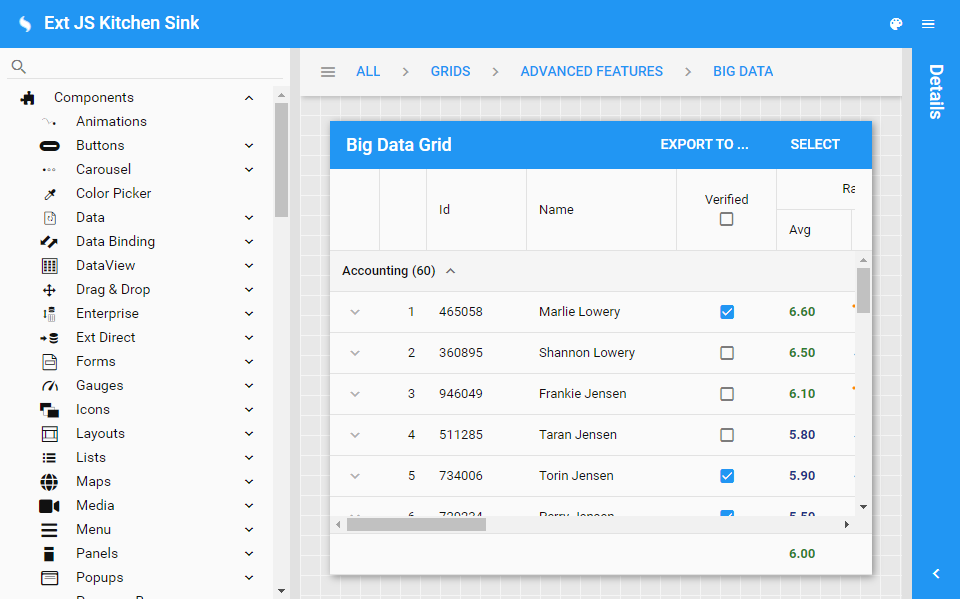Many of the web functionalities that we rely on once lived within individual desktop applications. From office suites, games, and financial tools, all of them are now web applications; they’re just as feature packed as their desktop counterparts. In the past I’ve used a variety of JavaScript grid widgets on client sites, and each had a number of pain points: performance, size, flexibility, etc. Sencha’s powerful DataGrid is possibly the best grid I’ve seen yet — let’s have a look.
Contents
Quick Hits
- Create responsive tables with filtering, sorting, pagination, AJAX, and much more
- Handles millions of records with no performance degradation
- Data import and export capabilities for CSV, TSV, HTML, PDF, and XLS
- Advanced plugin capabilities: Row operations edit, Drag-and-drop, Copy-Paste, Expand, Select, and more
- Support for embedding other Sencha JavaScript widgets within the grid
- Grids can be created from markup to allow maximum accessibility
- Numerous working examples to start your grid from
It’s easy to create an Ext JS grid from an existing HTML table from a few lines of JavaScript code:
grid = Ext.create('Ext.ux.grid.TransformGrid', 'my-table', {
stripeRows: true,
height: 130
});
grid.render(Ext.getBody());
Focus on Performance
Performance has always been a huge factor when determining a grid’s usability. Performance factors include initial load and render, drag/drop, data binding speed, sup-component speed, and general use. If you fail any of these tests, you’re likely going to shed users quickly. Sencha’s Grid is incredibly performant — all of these operations feel snappy and thus the grid feels really great to use.
Incredible Functionality
When users and engineers see powerful grids they tend to want more — sorting, data binding, drag and drop, special formatting, customizable fields, embedding of other widgetry — and Sencha Grid allows for all of that. And since Sencha already has a number of those components already, you save time not having to build them out. Integrate!
Ease of Implementation
As I’ve stated above, implementing a Sencha Grid can be easy, accessible, and with little code at that. Dynamically instantiating a Grid from an existing HTML table is easy, while initiating from JavaScript is also intuitive, for which there are many examples available!
Sencha has a reputation for creating amazing JavaScript utilities for more than a decade now. That reputation clearly shines as their Grid is amazing from any number of aspects!
[ad_2]
Source link

